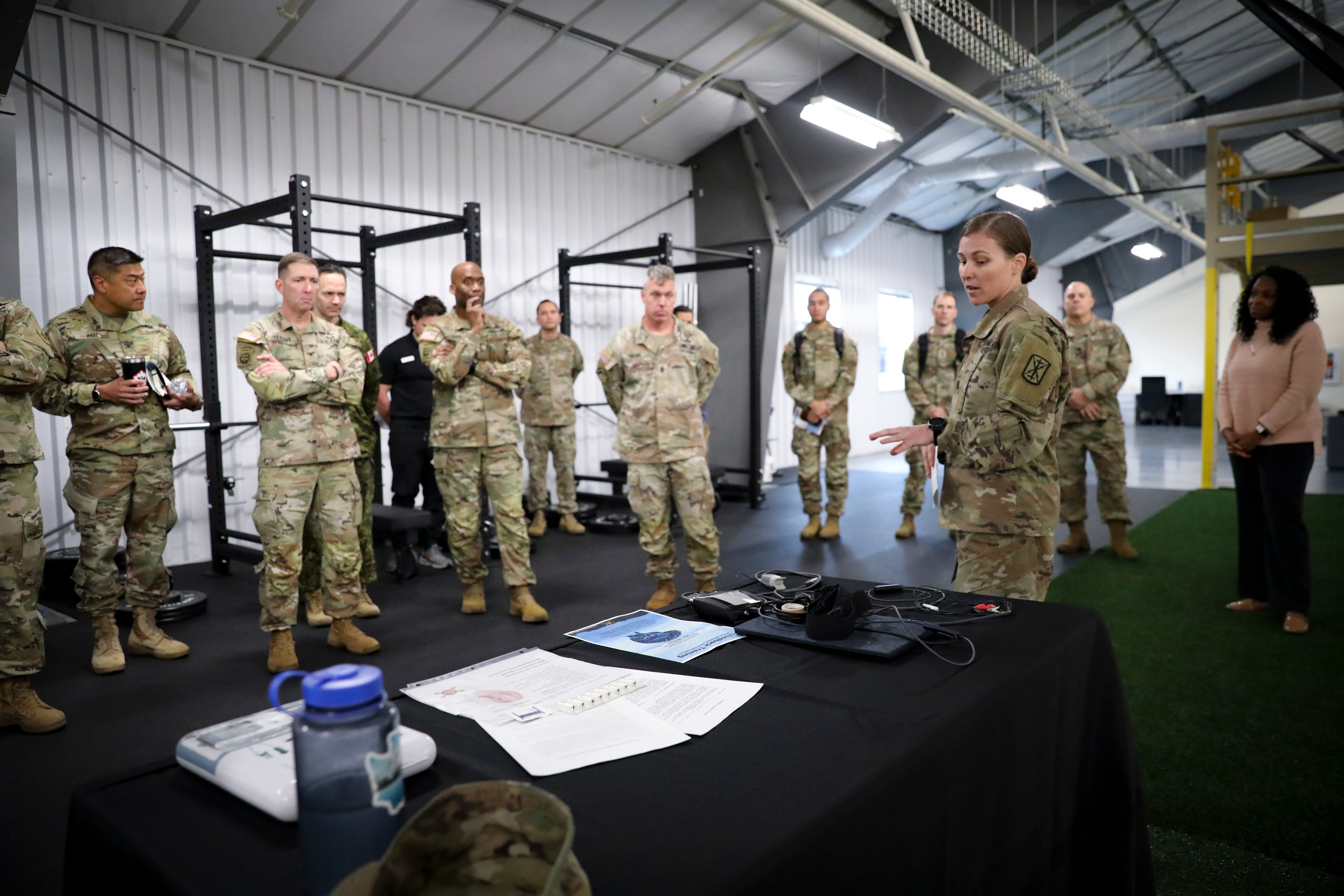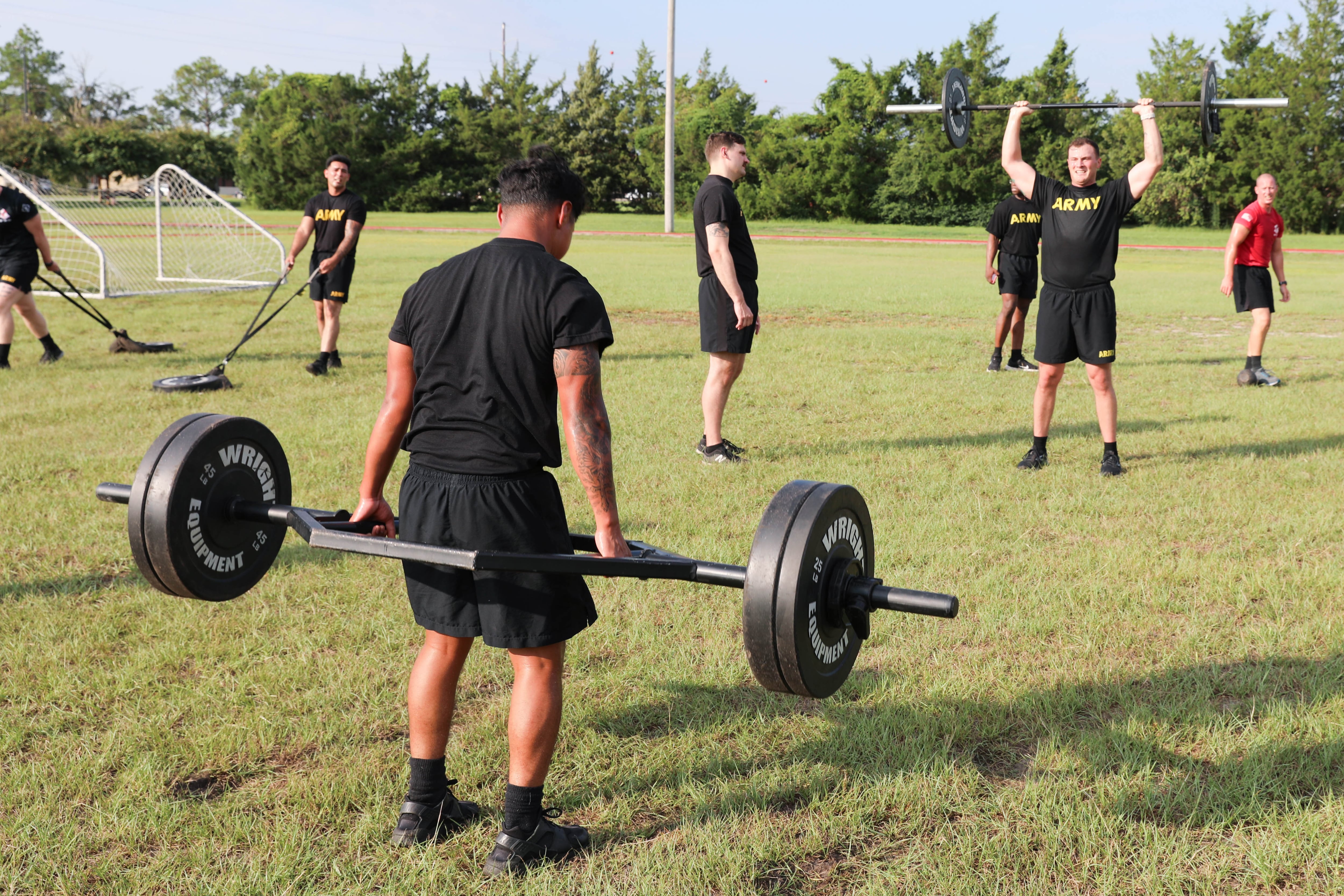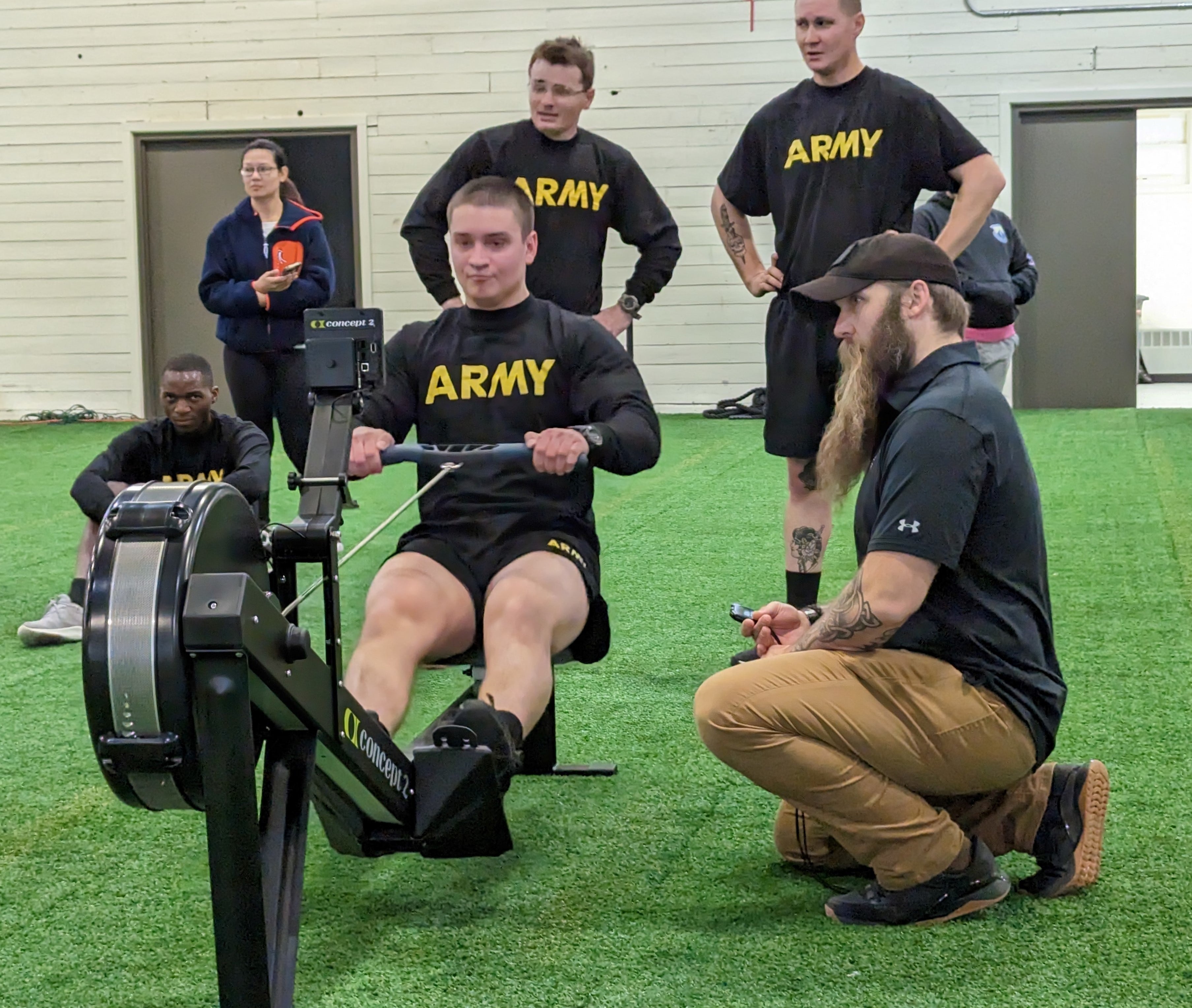One of the harder puzzles to solve with the Army’s new approach to total fitness is how to improve spiritual fitness or identify a soldier’s sense of meaning or purpose in their work.
That “meaning” factor, leaders and social scientists say, drives how soldiers see their jobs, and their place in a unit and helps build cohesive teams — a major initiative for the service’s new chief and sergeant major. It’s also one of the pillars of the Army’s Holistic Health and Fitness program. The program focuses on physical, mental, nutritional, sleep and spiritual health. The spiritual part can mean religion for some, but often translates to higher purpose, meaning, or why you do what you do and why it matters, experts said.
Paratroopers of the 173rd Airborne Brigade may have found methods that help soldiers find their “why” and build good teams in the process. Early data shows that soldiers enrolled in the “Tough in Spirit” program also showed lower reported numbers of behavioral incidents, participating units saw reductions in alcohol-related problems, sexual assaults and other infractions.
The data showed a 60% decrease in sexual assault reports, a 53% decrease in soldiers approaching chaplains for bad counseling incidents and an 83% reduction in the chance that a soldier will generate a Soldier Incident Report, Kloepper said.
The value quickly added up, as Kloepper cited Army data showing that an SIR equates to a 75% likelihood that soldier will be separated from the Army rather than reenlist.
Col. Michael Kloepper arrived at the brigade in 2021 and almost immediately set about solving a problem that was vital to his job as a commander.
“How do we foster comprehensive soldier readiness and well-being to build cohesive, trained, disciplined and fit, trust-based teams of paratroopers willing to die for one another?” he asked.
Kloepper had faced his share of hardship, deploying multiple times to combat and serving in the 75th Ranger Regiment. He’d seen what good, motivated teams could do under intense pressure.
But the colonel also knew what many see if they stick around the military long enough. Without a combat deployment on the horizon, it’s easy for units to get complacent, to not take their training seriously, seeing their duties as unrelated to their daily lives.
Kloepper did his homework.
Not only was he working with a new crop of soldiers who had been in grade school or younger when combat rotations were the norm, he was also seeing the first members of a new generation, Generation Z, one that’s been described as “digital natives” who, because of the self-esteem movement of the 1980s, are seen as more individualistic than their predecessors, risk-averse and emotionally fragile.
But as commander of a forward-deployed, combat-focused unit, he needed empathetic leaders who could build teams, accept prudent risk and inspire resiliency in their units.
RELATED

Kloepper looked to some of the Ranger Assessment and Selection Program, or RASP, lessons learned that help the elite unit find the best talent in those who strive to join the Regiment.
That meant picking the right receiving and training cadre, so that soldiers saw good examples of leadership from day one when they arrived at the 173rd, he said.
It also meant building common protocols for training, adding coaching tools more common in sports, and building in the right kinds of stress, with increasing intensity over time to “inoculate” soldiers to stress they hadn’t faced before as civilians or even in other Army units.
Kloepper finished his time at 173rd this summer, when he spoke with Army Times, and now serves as Brigade Tactical Officer for the U.S. Military Academy at West Point. The “Tough in Spirit” program continues at the airborne brigade, officials told Army Times.
It all started with in-processing. A demanding set of tailored physical fitness, team-building protocols, and practical life assistance helped show arriving soldiers what the expectations of the unit would be.
In-processing model for first two weeks:
- Physical: ACFT, 5-mile run, daily leader-led PT, injury risk screen.
- Unit Pride: Patching ceremony, newcomer’s PT, standards/policy letter classes, leader visits.
- Readiness: S1 metrics, S2/S4 online training, medical Soldier Readiness Program.
- Command sponsorship/exceptional family member program assistance, move-in/family assistance, transportation.
Source: 173rd Airborne Brigade
The colonel and his staff kicked off phase I of a pilot program from August to November 2021 that used one platoon, a rough period of instruction for various team-building events and started gathering data.
Phase II ran from January to April 2022, used four platoons, refined the instruction and implemented assessment criteria — if the soldiers were improving in physical training, marksmanship, field tasks and collective tasks when working together as a squad or in larger formations.
Phase III ran from July to December 2022 and expanded the pool to a dozen platoons and began more detailed data analysis, comparing 20 test groups using “Tough in Spirit” with 20 groups not using the program.
Two key changes seem to have improved the program significantly: Ensuring each small unit had a Master Fitness Trainer-qualified soldier leading the group’s physical training and adding chaplains into the unit’s team-building events, according to 173rd Brigade data.
Early, non-peer-reviewed data showed some promising results.
Outcomes of one unit in a 9-month period before and after implementing the program:
- Two fewer injury profiles for every three master fitness trainers were added to the group.
- 21% drop in injury or underperforming physical profiles with 17 MFTs.
- 27% drop in injury or underperforming physical profiles with 32 MFTs.
- 60% accuracy in predicting injury when injury risk screening is performed.
Source: 173rd Airborne Brigade
While the tailored physical training, assessments and re-enforcing unit pride in ceremonies and leader visits helped set the tone, Kloepper said that small, demanding, outdoor activities truly showed their worth.
“Imagine in an Outward Bound-like setting, 48-hour period of time, immersive environment, sort of harsh,” Kloepper described.
In the rugged terrain near the 173rd’s home, groups would camp out, hike up mountains and talk about life’s purpose.
RELATED

Kloepper asked four chaplains to design a program that would help soldiers discuss the meaning and purpose of these events.
Each of the chaplains worked with a platoon, trying their own approach.
Chaplain Bert Synder IV told Army Times in an email response that while he was “100% bought in” on the goal of connecting soldiers through meaning, he had no alpine skills himself.
But after a lot of help from the brigade executive officer, Lt. Col. Dan Tabacchi, the chaplain later went on a two-day, 30-mile movement up 8,000 feet of elevation gain with the unit’s sapper platoon and camped at a local dairy.
One soldier who’d grown up in urban Chicago, had never seen a cow before.
“He couldn’t believe it. He’d never been camping, he’d never been on a hike,” Snyder wrote. “His only understanding of these things were in basic training. In the mountains, he cultivated a love for the outdoors, for doing these hard things, not because he had to, but because it felt good inside after he did.”
As part of the initial processing, Snyder asked each soldier, “what makes you smile.”
Some said they didn’t know, no one had ever asked them. And in the chaplain’s mind, if soldiers don’t know what makes them smile, they’ll be hard-pressed “to identify what they are truly willing to stand for, needless to say, die for.”
“So many soldiers feel like there is no one out there who really cares about them, interested in them. So many haven’t even considered a question as simple as this,” Snyder wrote. “They are isolated, lacking community, unity, cohesion, intensified by much of the division in American culture today.”
RELATED

The 30-mile hike shifted to more rock climbing and canyoneering events after those first iterations, Snyder wrote. Though they were doing these events under the eye of alpine mountain guides, the added risk, Snyder wrote, pushed the soldiers to their limit and required more connection, communication and cohesion.
Staff Sgt. Kyle Johnson served as the religious affairs noncommissioned officer in charge for the brigade. He expected the “Tough in Spirit” program would test soldiers and help the ministry team better connect with the units.
What he found was a noticeable increase in camaraderie among participants.
“The person you are next to may be responsible for your life,” Johnson wrote in an email response. Getting a chance to train together, tackle tough obstacles and learn more about each other makes a big difference.
Todd South has written about crime, courts, government and the military for multiple publications since 2004 and was named a 2014 Pulitzer finalist for a co-written project on witness intimidation. Todd is a Marine veteran of the Iraq War.





